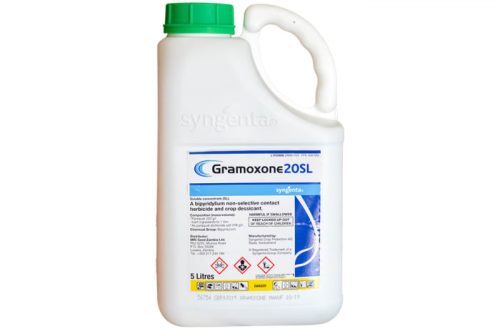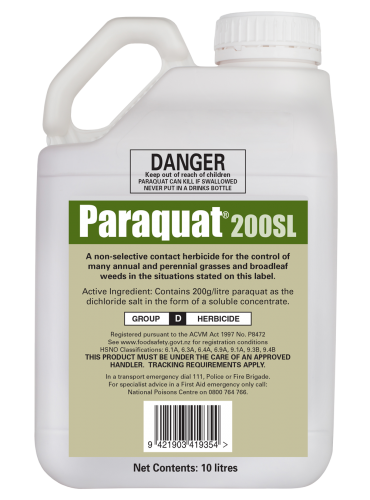Paraquat Weed Killer Linked to Parkinson’s Disease

Paraquat weed killer has been linked to serious health issues.
Paraquat Lawsuit
Paraquat is a commercial strength weed killer that increases the risk of developing Parkinson’s disease. If you or a loved one developed Parkinson’s disease after being exposed to paraquat, you may be entitled to compensation. Contact the experienced lawyers at Elk & Elk for a free, no-obligation consultation.
What is Paraquat?
Paraquat is a toxic weed and grass killer used in commercial crop operations. Introduced in the 1960s, it kills most green plant tissue on contact and has become one of the most popular commercial herbicides in the United States. In fact, it has become a popular alternative to Monsanto’s Roundup, which has also been linked to serious health problems.
The Link Between Paraquat and Parkinson’s Disease
Science shows paraquat is extremely dangerous. Research indicates that exposure to paraquat significantly increases the risk of Parkinson’s disease.
Parkinson’s disease is a brain disorder that leads to shaking, stiffness, and difficulty with walking, balance and coordination. Parkinson’s symptoms usually begin gradually and get worse over time.
Low-level exposure to paraquat disrupts cells in a way that mimics the effects of mutations known to cause Parkinson’s disease.
Are you or a loved one suffering from Parkinson’s disease after being exposed to Paraquat? You may be entitled to compensation. Call 1-800-355-6446 or click here for a free case review.
Timeline of Paraquat’s connection to Parkinson’s Disease:

Research linking Paraquat to Parkinson’s disease dates back to 2009.
- 2009 – American Journal of Epidemiology: Exposure to paraquat within 550 yards of a home increases the Parkinson’s disease risk by 75 percent.
- 2011 / June – Environmental Health Perspectives: Parkinson’s disease is “positively associated” with paraquat exposure.
- 2011 / July – National Institutes of Health: Farmers using paraquat are 2.5 times more likely to develop Parkinson’s disease.
- 2012 – Genetic Modification Association of Paraquat and Parkinson’s disease: Individuals with certain genetic variations are 11 times more likely to develop Parkinson’s disease.
- 2016 / March – Environmental Protection Agency (EPA) announces it will explore health risks associated with paraquat.
- 2016 / December – Nature Chemical Biology: Paraquat kills cells through a mechanism called oxidative stress, which is linked to Parkinson’s disease.
- 2017 / July – The Unified Parkinson’s Advocacy Council urges the EPA to end the use of paraquat because of its connection to Parkinson’s disease.
“People exposed to these chemicals are at about a 250 percent higher risk of developing Parkinson’s disease than the rest of the population.”
– Professor Scott Ryan, 2018
Who is at Risk of Being Exposed?
- Farmers and farmworkers
- Herbicide applicators
- Chemical mixers
- Tank fillers
- Individuals living around farming communities
- Anybody with low-level chronic exposure to spray drift
Discuss your legal options with the skilled lawyers at Elk & Elk. For a free, no-obligation consultation, call 1-800-355-6446 or click here.
Who Makes Paraquat?
Syngenta, Chevron Chemical and Growmark manufactured and sold paraquat.
Brand names include:

Paraquat has been sold under many brand names.
- Blanco
- Bonfire Herbicide
- Devour
- Firestorm
- Gramaxone
- Helmquat
- Para-SHOT
- Paraquat
- Parazone
- Quik-Quat
Victims May be Entitled to Compensation
Chemical manufacturers failed to warn consumers about the health risks associated with paraquat exposure. Elk & Elk’s paraquat lawyers can help you receive compensation for:
- Lost wages
- Pain and suffering
- Medical expenses
If you or a loved one was diagnosed with Parkinson’s disease after being exposed to paraquat, call 1-800-355-6446 or click here. Our case reviews are free and we offer a no-fee promise.